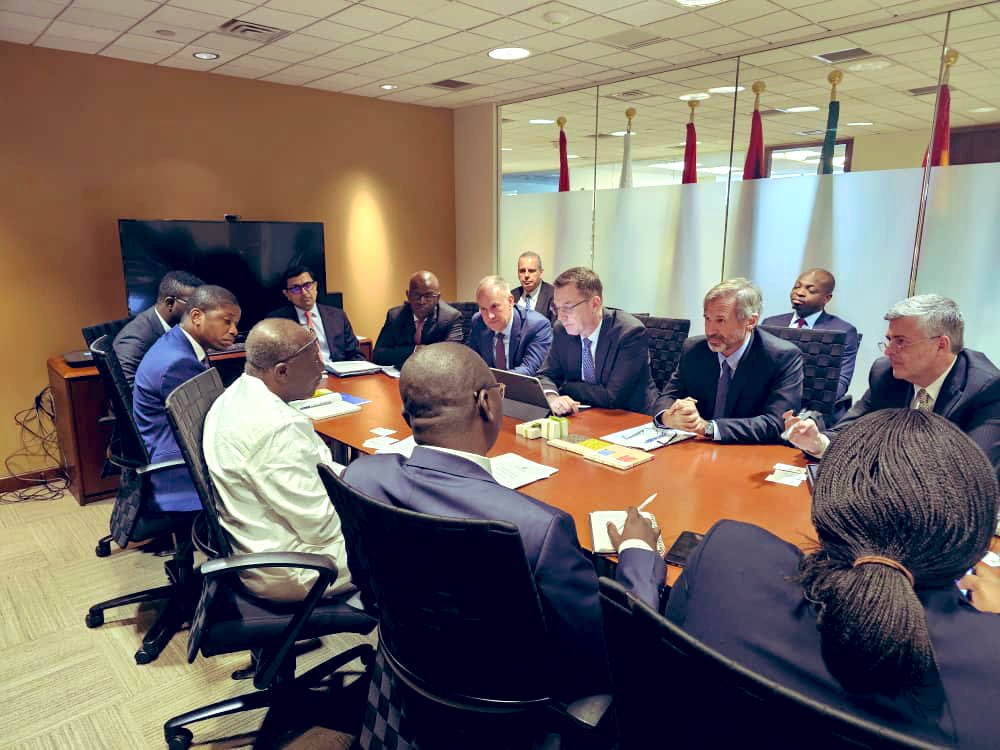By Francis Ntow
Accra, April 13, GNA – Ghana’s projection to secure an Executive Board approval from the International Monetary Fund (IMF) for its $3 billion loan-support programme by the end of second quarter of 2023 is likely to happen.
This is because Ghana’s largest bilateral creditor, China, which the country owes $1.7 billion, has agreed to speed up processes for its debt treatment.
“China [and all creditors] has agreed that it [debt treatment] has to be speedily dispensed. That is a great step forward because once you recognise that you have to do it in time and at the earliest, it moves faster. So, I expect a resolution for these countries,” Nirmala Sitharaman, Finance Minister, Republic of India said.
She was speaking at a press briefing of the Group of 20 Presidency’s (G20) second Finance Ministers and Central Bank Governors (FMCBG) at the ongoing 2023 IMF/World Bank Group (WBG) Spring Meetings in Washington DC, US.
“We had around the table, Sri Lanka, Zambia, Ghana, Chad [which] has already been attended to, and Ethiopia. So, discussions were to ensure that the resolutions for these countries should happen on time. All stakeholders in this matter should come on board to talk,” she said.
She added that: “The point is that it [debt treatment] is very time-consuming and even when the IMF says it is handling your affair, it does take time, and we found that almost all of them, inclusive of public and private creditors, of them, said it must be addressed at the earliest time.”
During an investor presentation on the sidelines of the spring meetings, Ghana’s Finance Minister, Ken Ofori-Atta, said the Government is expecting an IMF Executive Board engagement and approval in the second quarter of 2023.
The Government is having preliminary and technical discussions with Bondholders Committee Advisors and Bilateral Creditors Secretariat and Technical Teams – as well as Bilateral and Private Creditors – which areexpected to conclude by the end of April, to gain financial assurances for the $3bn loan-support programme.

“The restructuring of the external debt is necessary to restore debt sustainability and ensure the full financing of the programme,” Mr Ofori-Atta said.
He emphasised that Ghana’s creditor engagement strategy would be anchored on transparency, good faith efforts for a collaborative process to restore debt sustainability, fair treatment across creditors -consistent with IMF debt sustainability analysis.
Already, the IMF, World Bank Group and the Group of 20 Presidency (G20), have all pledged to increase concessional financing to Ghana to address the country’s current debt challenges.
“Work will be undertaken on principles regarding cut-off dates, formal debt service suspension at the beginning of the process, treatment of arrears, and perimeter of debt to be restructured, including domestic debt [for Ghana and other developing countries],” Kristalina Georgieva, Managing Director, IMF said on Wednesday.
Ghanaian authorities in December last year, reached a Staff-Level Agreement with the IMF, and currently awaiting the Fund’s Executive Board approval for the three-tier $3 billion loan-support programme under the Extended Credit Facility (ECF).
The country completed its Domestic Debt Exchange Programme (DDEP) and engaging its external creditors for debt operations for the loan facility, which is aimed at restoring macroeconomic stability, while protecting vulnerable.
Currently, some officials from Ghana, including Members of Parliament (MPs) and Members of the Economic Management team, are with the Finance Minister and the Governor of the Bank of Ghana, at the ongoing IMF/World Bank Spring Meetings to engage commercial, bilateral, and multilateral creditors to secure the IMF Board approval.
GNA